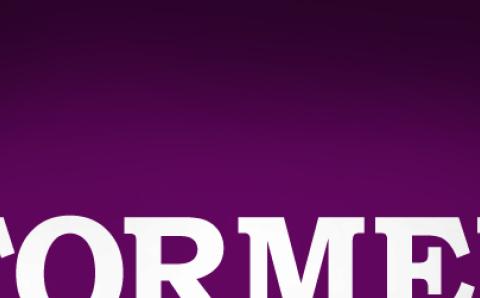It hangs over my desk—a gift from a friend, a solemn reminder. It’s a framed copy of Proverbs 27:17: “As iron sharpens iron, so one man sharpens another.”
“We use steel to sharpen steel, and one friend sharpens another” is how The Message renders it. And almost as quickly as we can nod assent, we ignore it.
Remember how a file can sharpen a knife? Remember how sharpening that knife makes it better, more useable? That is how we ought to function toward each other. Gently, consistently, carefully working toward the release of each other’s full potential.
In fact, the original Hebrew is phrased in such a way that it more accurately reads, “As iron sharpens iron, so each of us ought to sharpen one another.” The goal is sharpening—but not our tongues. (We’re quite adept at that, aren’t we?) Rather, we are to communicate in such a way that the other person is bettered by what we say and how we say it.
We’re called to become more like Joseph. You probably know him better as Barnabas, a nickname given to him by others because he realized so well that communication is a building tool, not a wrecking ball. His friends started calling him Son of Encouragement (Acts 4:36), an old Hebrew way of affirming that encouragement was a vital part of who Joseph was. Every time we meet Joseph, he is sharpening someone.
Shortly after Saul was converted, he came to Jerusalem. The disciples there were all, understandably, “afraid of him, not believing that he really was a disciple” (9:26). Enter Barnabas, standing up in Paul’s defense, vouching for his faith and commending his preaching. That day, Paul, an already sharp guy, became an even sharper tool for God because of the positive affirmation of Barnabas.
When persecution scattered believers far and wide, and some ended up in Antioch, the number of believers began to grow. At headquarters in Jerusalem, they decided to send Barnabas to see firsthand what was happening. His powerful encouragement not only helped their numbers to grow even greater, but their hearts as well, to such an extent that the name Christian was invented to describe folks who were so obviously Christ-like. Barnabas was doing what he was so good at, sharpening others’ faith and causing it and them to grow.
When Paul refused to take John Mark on a second mission trip for fear he’d bail on them again, Barnabas took John Mark under his wing and accepted and encouraged him. Paul and Silas went one way, Barnabas and John Mark another (Acts 15:37-41). But once again, the sharpening influence of Barnabas brought back into the work of the Lord one who had once deserted Paul but later became so valuable to him that he asked for him to come and be with him near the end of his life (2 Tim. 4:11). Through Barnabas, another life was sharpened, not only for Paul’s use but also for God’s use.
Barnabas was no pushover. He stood his ground and defended his faith. But he used his communication skills, written or oral, to build up others, to sharpen them.
I suggest that we need more “sharpeners” among us.
I suggest that God calls us all to be “sharpeners.” So let’s use our communication skills and opportunities to build up, to encourage, to reach toward, to draw in, to enhance, and to improve one another and the church we so dearly love.
This familiar Old Testament text, seen through the filter of a disciple like Barnabas, calls all of us to be more like Jesus—not just in what we say but in how we say it. Then we will truly sharpen each other, recognize one another’s worth, and enhance each other’s service to God.
About the Author
Rev. Joel R. Boot is the executive director of the Christian Reformed Church in North America.








